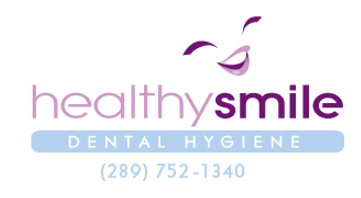Dental emergencies can occur anytime, resulting in pain, suffering, and uneasiness. Regular dental exams are required for your best oral health to keep your mouth clean and healthy, but sometimes you need an emergency dentist immediately. In this article, we will explore the five most important indicators that signal the need for immediate dental care and a quick visit to our dental care expert. These indicators help you decide when to contact a dentist on an emergency basis and quickly address any possible problems.
1. Severe and Persistent Tooth Pain
Severe and chronic tooth pain is one of the most obvious indicators for seeing an emergency dentist. Toothaches can be caused by several conditions, such as infections, tooth decay, or even dental abscesses. Minor tooth sensitivity may not warrant urgent alarm, but in case of severe, persistent tooth, one needs to rush to an expert dentist to address the issue and find the root cause of his pain.
Ignorance of tooth pain can be deadly and treating such pain at home through general painkillers can pose serious health issues; it may result in many complexities, including infection spreading and affecting nearby teeth and tissues. To relieve pain and stop additional damage, an emergency dentist is indispensable who can perform a comprehensive examination, determine the underlying source of the pain, and administer the necessary therapy.
2. Swelling and Oral Abscesses
An oral abscess or facial swelling is a dead giveaway that you require emergency dental care. A painful accumulation of pus that grows inside the gums or teeth is called an abscess, and it is mostly the consequence of infection or leaving the tooth decay untreated for a long time. A growing infection may be indicated by swelling in the face, neck, or gums, which could be dangerous for one’s general health as well as oral health.
An emergency dentist is qualified to treat oral abscesses, remove pus, and treat the infection with antibiotics. Prompt action not only reduces swelling and pain but also stops the infection from spreading to other areas of the body and leading to more serious issues.
3. Trauma to the Mouth: Chipped, Broken, or Dislodged Teeth
Chipped, broken, or dislocated teeth can also result from oral injury caused by accidents, falls, or sports injuries. To reduce damage and improve the likelihood of saving the damaged tooth, this kind of dental emergency needs to be attended to right away.
An emergency dentist can determine the degree of damage to a chipped or fractured tooth and suggest the best restorative techniques, such as crowns or dental bonding. It is necessary to take immediate action when dealing with a loose tooth. If at all feasible, try to put the tooth back in its correct place or socket. If not possible, get dental care right away. A successful re-implantation is more likely the earlier the tooth is treated.
4. Loose or Knocked-Out Tooth
A loose tooth is a cause for concern, especially if it results from trauma, injury, or advanced gum disease. Similarly, a knocked-out tooth requires urgent attention for the best chances of saving and reimplanting the tooth successfully.
If you experience a loose tooth, you must see an emergency dentist promptly. The dentist will assess the underlying cause, ranging from dental trauma to periodontal issues, and recommend appropriate measures to stabilize the tooth. In the case of a knocked-out tooth, time is of the essence. Handle the tooth carefully by the crown, rinse it gently, and try to reinsert it into the socket. If reinsertion is not possible, place the tooth in a container of milk or saliva and head to the emergency dentist immediately.
5. Persistent Gum Bleeding
While some bleeding of the gums during brushing or flossing is normal, persistent or severe bleeding can point to a more serious problem that must be addressed immediately. Prolonged and excessive bleeding may be the result of oral trauma or advanced gum disease (periodontitis).
It is time to see an emergency dentist if you discover that your gums are bleeding continuously, even when you apply light pressure. Gum bleeding may indicate the presence of an underlying issue, such as inflammation or an infection. The dentist will assess the state of your gums, determine what is causing the bleeding, and suggest the best course of action to resolve the problem and stop more difficulties.
Recognizing the signs and identifying what warrants a visit to an emergency dentist is crucial for maintaining optimal oral health and preventing more severe complications. Severe and persistent tooth pain, facial swelling or oral abscesses, trauma resulting in chipped or broken teeth, loose or knocked-out teeth, and persistent gum bleeding are all signals that should not be ignored.
Timely intervention by an emergency dentist can alleviate pain, address the underlying issues, and prevent the escalation of dental problems. While regular dental check-ups and preventive care are essential, being aware of these signs empowers individuals to seek prompt, professional help when needed, ensuring that their oral health remains in the best possible condition. Remember, in dental emergencies, swift action can make a significant difference in outcomes, so don’t hesitate to reach out to an emergency dentist when faced with these signs.
